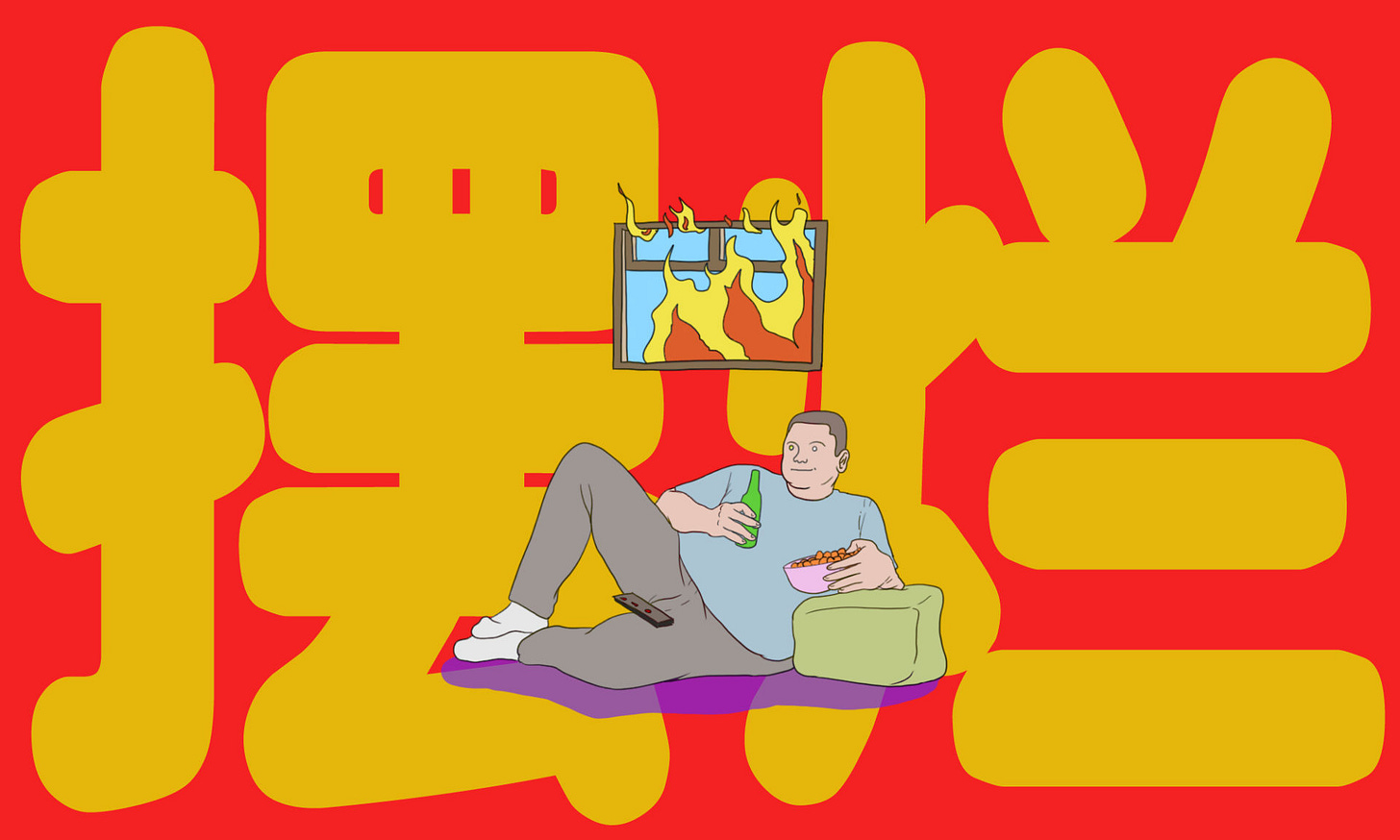Welcome to RealTime Mandarin—a multimedia resource to immerse you in the latest Chinese language trends, inspire you to practice and improve your Mandarin every week, and empower you to communicate with confidence.
Subscribe now to get the next issue straight to your inbox!
Tencent Holdings founder, Pony Ma Huateng (马化腾 mǎ huà téng) has sparked online discussion (SCMP, English) about economic difficulties caused by China’s dynamic zero Covid policies (动态清零政策 dòng tài qīng líng zhèng cè).
In a short post on his Wechat feed, Ma endorsed the article Nobody cares about the economy except for Hu Xijin (除了胡锡进,已经没有人关心经济了). It describes the Chinese technology industry’s current struggles.
Screen shots of his post quickly circulated on the Chinese internet, leading to debate on platforms like Weibo, and in the media (163.com, Chinese).
There’s a mix of opinions online.
Some are very critical:
“做互联网的人畏惧了,做实业的人退缩了,做投资的人迟疑了,在进行创业的人迷茫了。”但你猜怎么的?他在留言区被批得体无完肤,就差被说成“资本家的走狗”了。
‘People in the Internet business are afraid, those in the real economy are shrinking their operations, investors are uncertain, and entrepreneurs are feeling lost’. But guess what some people say? In the comments section, netizens are deeply critical of him, calling him ‘the running dog of capitalists’.
Whereas others are less punchy, instead encouraging entrepreneurs like Ma to speak out more:
“敢说话”连起来已经成为了一种正面词汇,却存在负面风险暗示,要是连成一句“企业家敢说话”就更可怕了,换上微博、头条上的那些舆论投机者会马上跟进一句追问:你想干什么?!
让我们一起期待充满激情的企业家群体早日回归我们的视野,没有企业家的贡献和积极参与,我们很难在与美国甚至欧洲的战略竞争中取胜。
‘Dare to speak out’ as a phrase has come to have a positive meaning, but it does also bring with it some hidden risk. If used in the sentence, ‘the entrepreneur is willing to speak out’, that is more concerning. Put on Weibo or Toutiao, it will soon be jumped on by opportunist netizens looking to ask: what they are trying to achieve?
Let’s hope that passionate entrepreneurs can come back into view. Without their contribution and participation, it will be very hard for China to win in the strategic competition with the US and Europe.
So this week we explore conversations online about Ma and his comments about the economy, Covid and China’s tech companies.
Favourite Five
1. 摆烂 bǎi làn
let things rot; things couldn’t get any worse
确实就是这么个道理,不让裁员不让降薪,那就只能破产了,大家一起摆烂一起吃低保,难道评论区的人的工作就能保住吗 - He really does have a point. If companies can’t lay people off or cut their salaries, the only other option is to go bust. We let things get to their worst, and live off a basic allowance. Will the people commenting here really be able to keep their jobs?
More: we first explored the meaning of this word way back in December last year. It’s since become a hot word of 2022 among young people. Vincent Ni of the Guardian has a good piece on it this week.
2. 骂娘 mà niáng
curse at; swear at
如果他们叫的外卖晚了十分钟,他们可是会骂娘的,骂起外卖小哥来比谁都狠 - If they order the takeout and it’s ten minutes late, they will get upset and be really harsh to the delivery boys.
Related: 骂爹 mà diē which we first looked at last month. Also can be 骂爹骂娘 mà diē mà niáng.
3. 俗不可耐 sú bù kě nài
vulgar, low level
他们唯一关心的中国经济就是芯片和所谓的硬核科技,至于衣食住行,都太俗不可耐了 - The only thing they care about on the Chinese economy is microchips and so-called hard tech. Things like the basics in people’s everyday lives are not important.
4. 喝西北风 hē xī běi fēng
drink the north westerly wind; have nothing to eat
老百姓没收入就喝西北风,我们的国家怎么可能会允许那样的情况发生!- Without any income, people will not be able to survive. How can our country allow this to happen?
More: one of my favourite idioms, originally discussed on 5 February this year when we discussed taking on Tencent.
5. 文死谏,武死战 wén sǐ jiàn, wǔ sǐ zhàn
the official dies making warnings, the soldier dies on the battlefield; risk one’s life to make a point or to win a battle
胡锡进是最关心中国经济的大V,甚至有了一些“死谏”的悲情感 - Hu Xijin is the online influencer that most cares about the economy, even to a point where his comments are causing him problems.
More: this can also be shortened to 死谏 sǐ jiàn, risking one’s life to make a point that the emperor doesn’t want to hear. This phrase is traced to one of China’s ‘big four’ classical novels, Dream of a Red Chamber (红楼梦 hóng lóu mèng).
Consuming the conversation

Useful Words
This week we revisit quite a few of the words we learned in the first month of publishing this newsletter in February, 2021.
锤 chuí
hammer, have a go at
在他们看来,锤大厂反资本高于一切,防疫可以不惜一切代价 - As far as they are concerned, having a go at big tech firms and investors is more important than anything else. Fighting the pandemic can be done at any cost.
背锅 bēi guō
take the blame for something that isn’t your fault; be a scape for something
需要你解决就业的时候,你是企业家;需要你背锅的时候,你就是资本家 - When you are needed to resolve employment problems, you are an entrepreneur; when you are required to take the blame for something, you are a capitalist.
More: woohoo! The first ever word I shared in this newsletter when it started on 8 Feb 2021. It can also be 背黑锅 bēi hēi guō - carrying the black pot.
吐槽 tǔ cáo
complain about something
相信不信任这个国家的人也不会在这片土地上吐槽 - I believe that entrepreneurs that don’t believe in this country would not stay here and complain.
Note: another blast from the past, a word we first discussed on the third ever Slow Chinese 每周漫闻 newsletter on 20 February 2021.
久违 jiǔ wéi
long absence
这是重量级企业家久违的发言 - This is a speech from a heavy-weight entrepreneur that we haven’t heard from for a long time.















